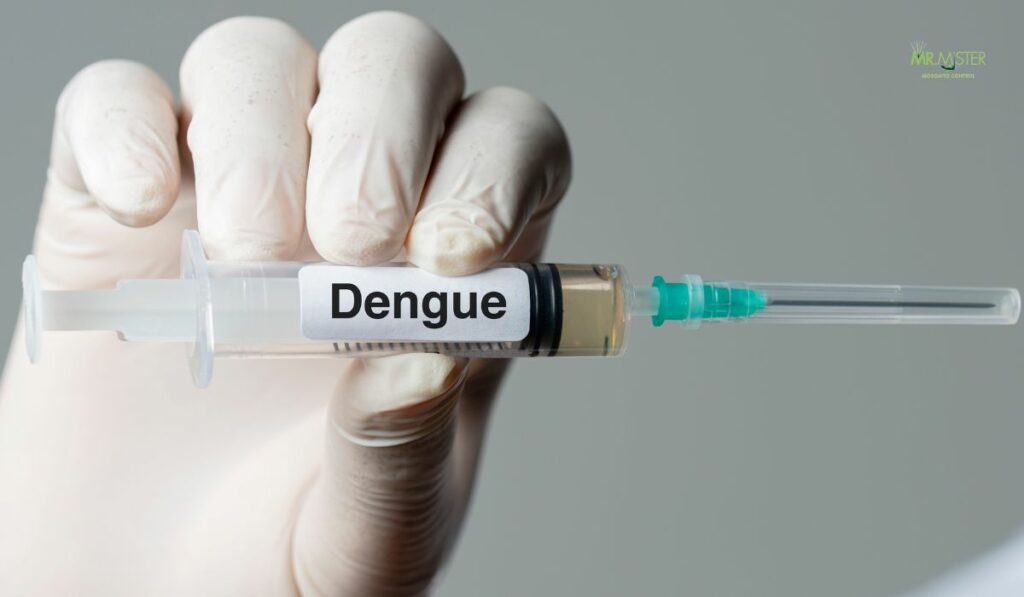Dengue Fever Outbreak at Puerto Rico: Public Health Emergency Declared
Puerto Rico is currently facing a significant public health challenge as health authorities declare an epidemic due to a surge in dengue fever cases.
The escalating number of reported cases has prompted urgent action to contain the outbreak and mitigate its impact on the population.
Rapid Rise in Cases:
The latest data from Puerto Rico’s Department of Health reveals a troubling trend: dengue fever cases are reaching alarming levels.
At least 1,293 cases have been reported, accompanied by over 340 hospitalizations, indicating a sharp increase compared to previous years.
Epidemiological Surveillance Findings:
Health officials have conducted epidemiological surveillance to assess the scale of the outbreak.
The results are concerning, showing a staggering 140% increase in dengue cases compared to the same period last year.
This data underscores the severity of the situation and the urgent need for intervention.
Call for Collective Action:
Carlos Mellado López, the Health Secretary of Puerto Rico, has issued a call to action, emphasizing the importance of a unified response to combat the outbreak.
Mellado López highlights the need for cooperation from all sectors of society to prevent further transmission of the virus and protect public health.
Travel Advisory Issued:
The Centers for Disease Control and Prevention (CDC) have issued a Level 1 travel warning for American travelers, particularly those venturing outside the country.
This advisory aims to alert travelers to regions experiencing increased dengue activity, including Argentina, Brazil, Colombia, and Costa Rica.
Preventive Measures Recommended:
To mitigate the risk of dengue fever transmission, the CDC recommends several preventive measures.
These include the use of EPA-registered insect repellents, wearing protective clothing such as long-sleeved shirts and pants, and sleeping in screened or air-conditioned rooms.
Symptoms and Complications:
Dengue fever is characterized by symptoms such as severe headaches, high fever, vomiting, and a distinctive rash.
While many infected individuals may remain asymptomatic, severe cases can lead to complications such as plasma leakage and even death.
Conclusion:
The declaration of an epidemic in Puerto Rico highlights the severity of the dengue fever outbreak and the pressing need for proactive measures.
Heightened awareness, community engagement, and practical mosquito control efforts are essential to contain the spread of the virus and protect public health.
Only through collaborative action can Puerto Rico hope to overcome this crisis and safeguard the well-being of its residents.
For more information on how you can contribute to mosquito control efforts and protect your community, visit Mr. Mister Mosquito Control.
FAQs
What is Dengue Fever?
Dengue fever is a viral illness transmitted by mosquitoes, primarily the Aedes aegypti and Aedes albopictus species. It is characterized by symptoms such as high fever, severe headaches, joint and muscle pain, nausea, vomiting, and a distinctive rash.
How is Dengue Fever Transmitted?
Dengue fever is primarily transmitted to humans through the bite of infected female mosquitoes. These mosquitoes become carriers of the virus after feeding on the blood of an infected person and can subsequently transmit it to others through their bites.
What Are the Risk Factors for Dengue Fever?
Individuals residing in or traveling to areas with high mosquito populations are at an increased risk of contracting dengue fever. Factors such as inadequate mosquito control measures, standing water accumulation, and lack of access to proper sanitation facilities can contribute to the spread of the virus.
What Precautionary Measures Can I Take to Prevent Dengue Fever?
To reduce the risk of dengue fever infection, preventive measures such as using insect repellents containing DEET, wearing long-sleeved clothing and pants, and sleeping in mosquito-netted or air-conditioned rooms are essential. Additionally, eliminating mosquito breeding sites by emptying stagnant water containers can help reduce mosquito populations.
What Are the Symptoms of Dengue Fever?
Common symptoms of dengue fever include high fever, severe headaches, muscle and joint pain, nausea, vomiting, and a skin rash. In some cases, individuals may also experience mild bleeding from the nose or gums.
How is Dengue Fever Diagnosed?
Dengue fever is diagnosed through clinical evaluation, including a physical examination and assessment of symptoms. Laboratory tests, such as blood tests to detect the presence of the dengue virus or antibodies, may also be conducted to confirm the diagnosis.
Is There a Treatment for Dengue Fever?
There is no specific antiviral treatment for dengue fever. Treatment typically focuses on relieving symptoms, such as fever and pain, through the use of over-the-counter medications like acetaminophen. In severe cases, hospitalization and supportive care may be required to manage complications such as dehydration or bleeding.
Can Dengue Fever Lead to Complications?
While most cases of dengue fever are mild and self-limiting, severe cases can lead to complications such as dengue hemorrhagic fever (DHF) or dengue shock syndrome (DSS). These conditions are characterized by plasma leakage, severe bleeding, organ impairment, and, in rare cases, death.
How Can I Help Control the Spread of Dengue Fever?
Community-wide efforts to control mosquito populations and prevent mosquito bites are crucial in combating the spread of dengue fever. This includes implementing mosquito control measures such as eliminating standing water breeding sites, using larvicides, and promoting public awareness about preventive measures.
What Should I Do If I Suspect I Have Dengue Fever?
If you experience symptoms of dengue fever or suspect you may have been exposed to the virus, seek medical attention promptly. Your healthcare provider can conduct tests to diagnose the infection and provide appropriate treatment and guidance on symptom management—additionally, practice self-isolation to prevent potential transmission of the virus to others.
* Schedule a Free Mosquito Control Consultation – 404-941-0720 *
* Guaranteed Results * 100% Biodegradable * Locally Owned






